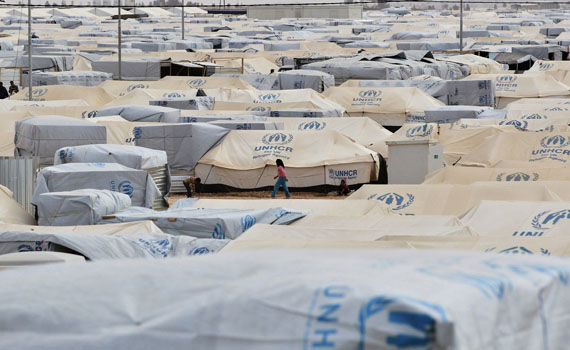We often hear of the Palestinian refugee crisis, and how many Palestinians are still living in refugee camps. But why do we hear comparatively little about refugees from other conflicts? Let’s look at those other crises, and see how they compare.
In his book Reclaiming Israel’s History, David Brog reminds us that the war in Afghanistan has produced 2.3 million refugees. Iraq’s recent war resulted in 1.5 million refugees and by mid-2017 the Syrian civil war has produced over 4 million refugees.
But those numbers are small compared to the refugees in the last two world wars. After World War I all ethnic Greeks living in Turkey were forced out of their homes to find homes in Greece. All ethnic Turks living in Greece were transferred to Turkey. Close to two million Greeks and Turks became refugees.
When India was granted independence from Great Britain in 1947 seven million Muslims from India became refugees and headed for the new state of Pakistan. Another seven million Hindus fled Pakistan to become refugees in India.
Twelve million ethnic Germans were expelled from Eastern Europe following World War II. Over two million died before finding new homes in Germany.
Let’s compare numbers. Something like 700,000 Palestinians became refugees at the end of the 1947-48 war between Jews and Arabs, a war which Arabs started. Many forget that at that time there were 800,000 Jewish refugees who were forced out of their homes all over the Arab world.
Why don’t we continue to hear about the German, Greek, or Turkish refugees, whose numbers were far greater than those from Palestine? The answer is that the Germans welcomed their refugees, as did India and Pakistan. And as did Israel. These countries welcomed their ethnic brethren refugees. Only the Arab countries failed to do so, refusing to this day to take Palestinian refugees into their countries.
By the way, how many Palestinian refugees are there? It depends on how you count. The UN High Commission for Refugees, which handles refugees from all the world except Palestine, says children born to refugees in exile do not count as refugees. Nor do refugees continue in that status once they gain citizenship in another country. But after the 1948 War the UN established a new organization dedicated exclusively to Palestinian refugees called the United Nations Relief and Works Agency (UNRWA), which counts descendants of refugees from the War plus those who are citizens elsewhere. This is the only country in the world where the UN counts refugees in this way. By this unique counting, UNRWA counts 5 million Palestinian refugees.
But here is the fine print: If you use the UN method of counting for all other countries, the number comes to approximately 30,000. Sad for those number, but minuscule compared to the number of refugees today from Iraq, Syria, and Afghanistan.
http://www.patheos.com/blogs/northamptonseminar/2017/05/26/palestinian-refugee-crisis/









